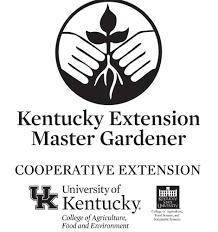
The Role of Master Gardeners in Community Gardening
Master Gardeners play a crucial role in promoting and supporting community gardening initiatives across the country. These dedicated volunteers are trained experts in horticulture and gardening practices, providing valuable knowledge and resources to help communities thrive.
One of the key responsibilities of Master Gardeners is to educate and empower community members to grow their own food, beautify public spaces, and promote sustainable gardening practices. Through workshops, demonstrations, and hands-on projects, Master Gardeners share their expertise with individuals of all ages and backgrounds.
Community gardens supported by Master Gardeners not only provide fresh produce for local residents but also serve as hubs for social interaction, education, and environmental stewardship. These green spaces foster a sense of community pride and connection among participants, promoting health and well-being.
Furthermore, Master Gardeners are instrumental in promoting biodiversity and conservation efforts within communities. By encouraging the use of native plants, reducing water consumption, and implementing environmentally friendly gardening techniques, they help protect local ecosystems and support wildlife habitats.
In conclusion, Master Gardeners play a vital role in enhancing the quality of life in communities through their passion for gardening and commitment to sustainable practices. Their dedication to education, service, and environmental stewardship makes them invaluable assets in fostering healthy, vibrant communities across the country.
7 Essential Tips for Becoming a Successful Master Gardener
- Join a Master Gardener program to receive training and certification.
- Share your gardening knowledge with the community through volunteering.
- Stay updated on the latest gardening techniques and research.
- Connect with other Master Gardeners for support and networking.
- Experiment with different plants and gardening methods to expand your expertise.
- Educate yourself on local plant species and their specific care requirements.
- Promote sustainable gardening practices in your community.
Join a Master Gardener program to receive training and certification.
Joining a Master Gardener program offers individuals the opportunity to receive comprehensive training and certification in horticulture and gardening practices. Through these programs, participants gain valuable knowledge and skills that enable them to become experts in the field. By completing the training, individuals not only enhance their own gardening abilities but also contribute to their communities through educational outreach and service projects. Becoming a certified Master Gardener is a rewarding experience that empowers individuals to make a positive impact on the environment and share their passion for gardening with others.
Share your gardening knowledge with the community through volunteering.
Sharing your gardening knowledge with the community through volunteering is a rewarding way to make a positive impact and inspire others to connect with nature. Master Gardeners embody this principle by offering their expertise to help individuals and communities cultivate thriving gardens, promote sustainable practices, and beautify shared spaces. By volunteering to share your gardening knowledge, you not only contribute to the well-being of your community but also foster a sense of camaraderie and environmental stewardship among fellow garden enthusiasts.
Stay updated on the latest gardening techniques and research.
Staying updated on the latest gardening techniques and research is essential for Master Gardeners to continue expanding their knowledge and skills in horticulture. By keeping abreast of new developments in the field, Master Gardeners can enhance their ability to provide accurate and up-to-date information to the community. Whether it’s learning about innovative planting methods, sustainable gardening practices, or emerging plant diseases, staying informed allows Master Gardeners to better serve and educate others, ultimately contributing to the overall success of gardening initiatives.
Connect with other Master Gardeners for support and networking.
Connecting with other Master Gardeners is a valuable tip for both novice and experienced gardeners. By engaging with fellow enthusiasts, you can tap into a wealth of knowledge, experience, and resources that can help you enhance your gardening skills and tackle challenges more effectively. Networking with other Master Gardeners not only provides a supportive community where you can exchange ideas and learn from each other but also opens up opportunities for collaboration on projects, workshops, and events that benefit both individuals and the broader gardening community. Embracing this tip can lead to valuable connections, friendships, and a deeper sense of belonging within the Master Gardener network.
Experiment with different plants and gardening methods to expand your expertise.
To broaden your gardening knowledge and skills, it is beneficial to experiment with a variety of plants and gardening techniques. By trying out different plant species and cultivation methods, you can expand your expertise and understanding of how plants grow and thrive in various conditions. Whether it’s testing out new vegetables in your vegetable garden or exploring alternative gardening approaches like vertical gardening or companion planting, embracing experimentation can lead to valuable insights and successes in your gardening endeavors.
Educate yourself on local plant species and their specific care requirements.
To become a successful gardener, it is essential to educate yourself on local plant species and their specific care requirements. Understanding the unique needs of plants native to your area will help you create a thriving garden that is well-suited to the local climate and soil conditions. By learning about the characteristics, growth habits, and maintenance tips for different plant species in your region, you can ensure that your garden flourishes with minimal effort and resources. Master Gardeners can provide valuable guidance on selecting the right plants for your garden and nurturing them to their full potential.
Promote sustainable gardening practices in your community.
Promoting sustainable gardening practices in your community is essential for preserving the environment and fostering a healthier ecosystem. Master Gardeners advocate for techniques such as composting, water conservation, native plant cultivation, and integrated pest management to minimize environmental impact and promote long-term sustainability. By adopting these practices, communities can reduce waste, conserve resources, support local biodiversity, and create beautiful, resilient gardens that benefit both people and the planet.
